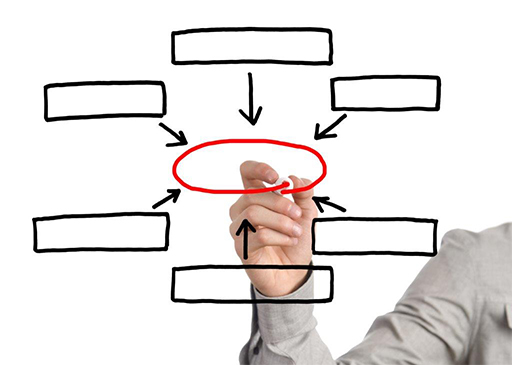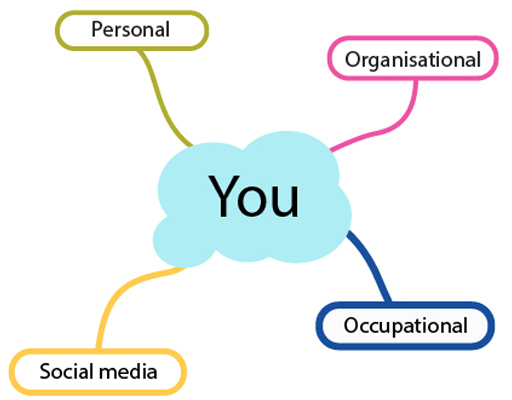3.4 Understanding your community network and how to use it
You will now have some understanding of why networks are so important in understanding and working with your community. From a personal perspective they can provide you with regular information, potentially deep local knowledge and sometimes resources on which you can draw to get things done. It is useful to get an understanding of how your network, and the contacts within it, fit together. It will make it clearer where they cross and are connected. You will use your notes from Activities 3 and 4 to do this now.
Activity 6 Mapping your whole network
This three-part activity helps you to create a ‘network map’. This is a visual representation of all your contacts, and how they might connect together.
Part 1
From your contacts list or address book make a list in your learning journal of people you know who have knowledge of or work in the community you work with. It doesn’t have to be a long list, just start with five or six key names. This is the network. You may add more names later as you develop the next part of the activity.
Comment
Remember to include your online contacts from social media, if you are already actively engaged online.
Part 2
Below this list, create a visual diagram of these network members. This is not a drawing exercise, you are simply trying to show on paper how things ‘look’ inside your head. One method of doing this is to use a mind map.
There are many ways to approach this. You could put yourself in the centre, with links from you to each of your different networks, off which you can write the appropriate names.
Comment
When you think visually, you often think differently and see things you might not have realised before. The final step in the exercise, therefore, is to reflect on what you have learned about your existing network.
Part 3
Write down your answers to the following questions in your learning journal to help you think about what you have learned from your mapping. Do not feel constrained by these prompt questions though. Make a note of whatever feels significant to you.
- Is the network imbalanced in some way? For example, do you have a great network of people from your own organisation but know relatively few people outside your usual place of work? What effect might this have?
- Are there any strands of the network which need to be improved to help you to satisfy your main purpose in networking? What and why?
- Is there anyone else you can add to the network who might help you in the work you do in the community?
Comment
You may have been surprised by how extensive a network you have already developed. You will almost certainly have noticed some gaps or duplications in it. This is fine though, as it is a natural result of different ways we live our lives. The important thing is to consider how you can use and sustain your network or extend it.
Creating networks is one thing, sustaining them is another. You need to be realistic, therefore, about how broad and deep a network you can manage at the moment. Being able to use networks skilfully and respectfully is the real challenge.


